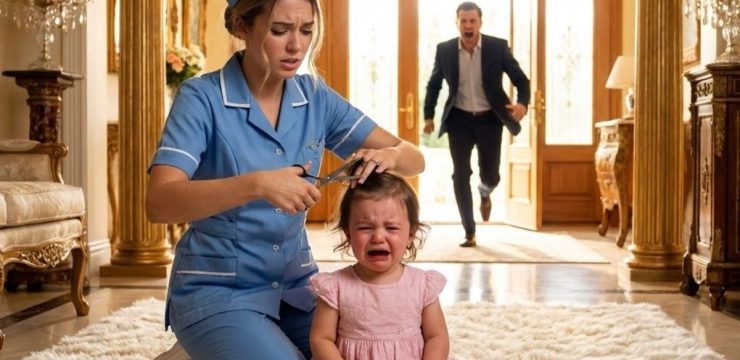I always thought I knew what silence meant. Growing up with my autistic brother Keane taught me to pay attention to the unspoken things—the subtle shift of his eyes, the way his jaw tightened, the quiet care he put into arranging his pencils by color and size before starting homework. Silence wasn’t just the absence of words in our house—it was the language we all had to learn.

Keane was diagnosed when he was three, and I was six. I don’t remember the actual moment our parents sat us down to explain, but I do remember the atmosphere in the house changing. Everything felt heavier. My mom became constantly exhausted, my dad started snapping at things that didn’t used to bother him, like crinkling chip bags or noisy cartoons. And I, well, I perfected the art of not being a burden. I learned how to be invisible. But Keane? He was steady. Quiet, kind, withdrawn—but steady. He didn’t talk, not back then and not for many years after. He’d smile sometimes, but only at the sky or the spinning ceiling fan, never really at people. Six months before my son Owen was born, Keane came to live with us. Our parents had passed—Dad from a stroke, Mom from cancer—and Keane had ended up in state housing, growing even more distant. I couldn’t bear to leave him there.
I offered him our home, and he just nodded, not quite looking at me, not saying a word. He fit into our household easily. Keane didn’t ask for anything, didn’t cause any trouble. He folded his laundry with military precision, followed his routines, and spent hours on his tablet, quietly humming as he played matching games. The humming used to make me crazy, but eventually, I stopped noticing it—until that one Tuesday. Owen had just hit the six-month mark and was in full-on meltdown mode.
I was sleep-deprived, overwhelmed, and frayed at every edge. My husband Will was working extra hours at the hospital, and I felt like I was barely hanging on. That morning had already been a whirlwind of diapers, tantrums, and reheated pasta when I finally managed to get Owen down for a nap. I stepped into the shower like it was a vacation, letting the hot water pretend to wash away the exhaustion. And then, I heard the scream. That awful, high-pitched cry that sends every parent’s heart straight to their throat. I raced out of the shower, shampoo still in my hair, water dripping onto the floor as I bolted down the hallway
But when I got to the living room, everything stopped. Keane was sitting in my armchair—the one he had never touched in six months. Owen was curled up asleep on his chest. Keane’s hand moved in gentle, rhythmic circles on Owen’s back, just like I do. His other arm was wrapped securely but softly around my son. And Mango, our temperamental cat, was purring loudly on Keane’s lap like she’d been there forever. I froze, stunned. Then Keane looked up—not quite at me, but somewhere near me—and softly said, “He likes the humming.” I felt it like a punch to the chest. The words. The awareness. The fact that Keane had chosen this moment to speak. “He likes the humming,” he said again. “It’s like the app. The yellow one with the bees.” I choked up and nodded. “You mean the lullaby one?” Keane nodded back. That moment cracked something wide open. I let him hold Owen longer that day. I watched them breathe together, in sync. I expected Keane to retreat once I paid attention, but he didn’t. He stayed present. The next day I asked if he’d help feed Owen. He nodded. Then again the next day. A week later, I left them alone for twenty minutes. Then longer. When I came home from coffee with a friend—my first outing since giving birth—Keane had changed Owen’s diaper and reorganized the changing table by color. He started talking more, too. Little things. Honest observations. “The red bottle leaks.” “Owen likes pears more than apples.” “Mango doesn’t like when the heater clicks.” I cried more in those few weeks than I had all year. Will noticed too. “It’s like Keane just woke up,” he said one night. And it felt like that. But along with the joy came something harder. Guilt. The more Keane engaged, the more I realized how little I’d truly seen him before. I’d accepted his silence as all he could give, never imagining he had more he wanted to share. And when he finally did, I almost missed it again. One night I came home to find Keane pacing. Owen was crying. Mango scratched at the nursery door. Keane looked at me, panicked. “I dropped him,” he said. My heart stopped. “In the crib,” he added quickly. “I didn’t want to wake him. He hit the side. I’m sorry.” Owen was fine. I checked everything. No marks. Just fussing. But Keane sat whispering, “I ruined it,” over and over. I sat next to him. “You didn’t ruin anything,” I said. “But I hurt him.” “You made a mistake. That’s what humans do.” He looked at me, unsure. “You’re not broken, Keane. You never were. I just didn’t know how to hear you.” He cried then—full, silent sobs. I held him the way he held Owen, and I finally saw him. Not as someone to fix, but someone to love exactly as he is. Now, six months later, Keane volunteers twice a week at a sensory play center. Owen’s first word wasn’t “Mama” or “Dada.” It was “Keen.” I never knew silence could hold so much meaning. Or that one sentence—“He likes the humming”—could change our whole world. But it did. And in that moment, I found my brother again.





